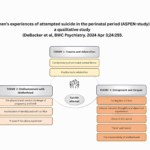TensorSpark – stock.adobe.com

Editor’s note: this story was originally published on BioPharmInternational.com.
Japan-based Nxera Pharma (Nxera) and Cancer Research UK announced on Sept. 17, 2025 that the first dosing of patients in a Phase IIa clinical trial (NCT05944237) has begun. The trial is meant to evaluate HTL0039732 (also known as NXE0039732), Nxera’s investigational small-molecule immunotherapy drug, in treating advanced solid tumors (1).
HTL0039732 is designed to block signaling through the prostaglandin E2 (PGE2)-type prostanoid receptor 4 (EP4). According to Nxera in a company press release, PGE2 acts in the tumor microenvironment to trigger cancer cells to evade the immune system (1). Unlike many existing immunotherapies, which rely on targeting immune checkpoints, EP4 antagonism addresses tumor-mediated immunosuppression within the microenvironment. This approach is of particular interest for drug developers seeking new strategies against cancers that historically respond poorly to current immunotherapies.
“The initiation of the Phase IIa trial marks a significant step forward in our efforts to bring this promising drug to patients with difficult-to-treat cancers,” said Matt Barnes, PhD, chief scientific officer and president of Nxera Pharma UK, in the press release (1). “The encouraging data from the Phase I study provide a strong foundation for continued clinical investigation, and we look forward to sharing further updates as the trial progresses.”
How is the clinical trial designed?
The ongoing trial, which is sponsored and managed by Cancer Research UK’s Center for Drug Development, is being led by Bristi Basu, PhD, of the University of Cambridge and Debashis Sarker, PhD, of King’s College London. The lead clinical site is Addenbrooke’s Hospital, Cambridge, UK, with additional enrollment at Experimental Cancer Medicine Center network locations.
The Phase IIa expansion will examine four tumor cohorts: microsatellite stable colorectal cancer, gastric or gastroesophageal junction adenocarcinoma, clear cell renal cell carcinoma, and metastatic castration-resistant prostate cancer. These tumor types represent areas of high unmet need, particularly in the context of immunotherapy resistance (2–5).
In an earlier Phase I study, patients with advanced, treatment-resistant solid tumors received HTL0039732 in combination with the checkpoint inhibitor atezolizumab. Results from this study included two confirmed partial responses in distinct tumor types, along with evidence of selective EP4 engagement without significant EP2 activity. These findings suggest that EP4 inhibition could complement existing immunotherapy modalities, potentially extending their reach into tumor types less responsive to current standards, according to Nxera.
“It is exciting to move to the next phase of assessing this new inhibitor of an important receptor EP4, which is implicated in suppression of the antitumor immune response,” said Basu in the release. “We hope that by combining it with immunotherapy, we will build on some of the promising early data we have seen in patients treated in the Phase I trial.”
What implications does the clinical development of HTL0039732 have on the broader oncology landscape?
From a drug development perspective, HTL0039732 exemplifies the trend toward small-molecule immuno-oncology approaches, offering oral administration and potential synergy with biologic checkpoint inhibitors. For drug manufacturers, the combination of small-molecule scalability with immunotherapy integration highlights the importance of flexible production strategies capable of supporting diverse treatment modalities.
“The dosing of the first patient in the Phase IIa trial of HTL0039732 is a significant step forward in the Center for Drug Development’s collaboration with Nxera Pharma, which exemplifies the power of partnership in accelerating the development of groundbreaking therapies,” said Lars Erwig, PhD, director of Cancer Research UK’s Center for Drug Development, in the release. “The need for novel immunotherapies is more pressing than ever, as many cancers continue to evade current treatments. We look forward to continuing this journey and bringing hope to patients and their families.”
As interest grows in targeting non-traditional immune pathways, the Phase IIa trial will be closely watched by those working in cancer drug research and manufacturing. Its outcomes could influence future strategies for integrating small molecules into immunotherapy pipelines and expanding therapeutic options for resistant solid tumors.
References
1. Nxera Pharma. Nxera Pharma and Cancer Research UK Announce First Patient Dosed in Phase 2a Trial of Investigational Cancer Immunotherapy HTL0039732. Press Release. Sept. 17, 2025.
2. Gandini, A.; Puglisi, S.; Pirrone, C.; et al. The Role of Immunotherapy in Microsatellites Stable Metastatic Colorectal Cancer: State of the Art and Future Perspectives. Front. Oncol. 2023, 13, 1161048. DOI: 10.3389/fonc.2023.1161048
3. Chung, D. T.; Tung, D. S.; Dung, T. N. Harnessing Immune Checkpoint Inhibitors Against Gastric Cancer: Charting the Course to Expanded Therapeutic Benefit. Biomedical Research and Therapy 2024, 11 (4), 6305-6325. DOI: 10.15419/bmrat.v11i4.877
4. Braun, D. A.; Bakouny, Z.; Hirsch, L.; et al. Beyond Conventional Immune-Checkpoint Inhibition—Novel Immunotherapies for Renal Cell Carcinoma. Nat. Rev. Clin. Oncol. 2021, 18 (4), 199–214. DOI: 10.1038/s41571-020-00455-z
5. Bansal, D.; Reimers, M. A.; Knoche, E. M.; Pachynski, R. K. Immunotherapy and Immunotherapy Combinations in Metastatic Castration-Resistant Prostate Cancer. Cancers (Basel) 2021, 13 (2), 334. DOI: 10.3390/cancers13020334








